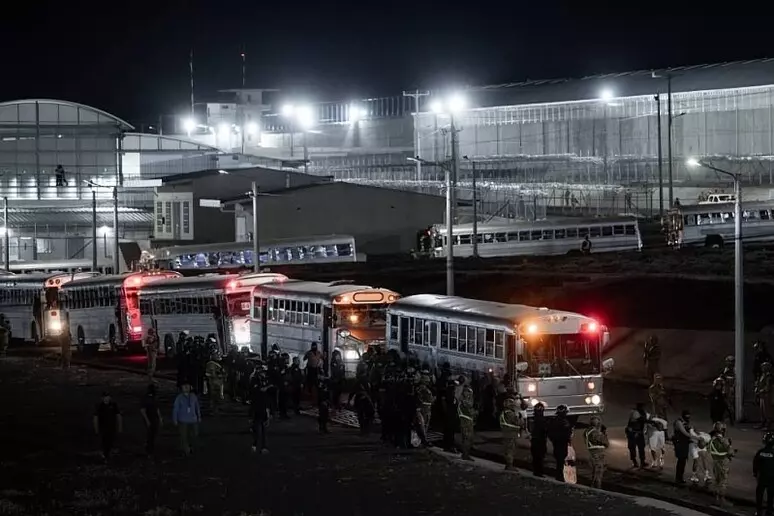They were bricklayers, cooks, drivers, veterinarians, make-up artists. Some held refugee status; others had tourist visas or had obtained temporary permits through official channels. None or almost none, had criminal records. Yet today they are locked up in El Salvador’s CECOT maximum-security prison, notorious for its harsh conditions and for housing some of Latin America’s most violent gang members.
According to an analysis released by the U.S. think tank Cato Institute, roughly 50 of the 240 Venezuelan nationals deported in recent months by the Trump administration to the infamous Terrorism Confinement Center were neither undocumented nor criminals: they had entered the United States legally.
The federal government justified the measure by claiming that everyone transferred was affiliated with the Venezuelan gang Tren de Aragua and therefore posed a threat to public safety. However, the Cato report, authored by David Bier, highlights the lack of concrete evidence supporting those accusations and notes that at least 75 percent of the names listed show no criminal convictions in either the United States or their home countries.
The Institute also points out that some of these migrants were arrested while still awaiting a decision on their asylum applications. According to Bier, the government acted opaquely, “making them disappear” without trial and bypassing legally mandated procedures.
Many of them, the investigation adds, had entered through the CBP One app, a tool designed to allow controlled, lawful entry into the country. Some had received a two-year temporary visa, while others were detained when they showed up for their scheduled immigration appointments.
Despite the seriousness of the situation, neither the White House nor the Department of Homeland Security has addressed the report’s findings in detail. A spokesperson for the Republican administration merely reiterated that the transferees were “dangerous criminals” and criticized the media for focusing on the alleged perpetrators rather than on victims of crimes committed by “illegals.”
Yet the narrative shows clear cracks. In addition to Cato’s data, news outlets such as CBS, Reuters, and The New York Times found no criminal records for the majority of the deported individuals. CBS, which obtained an official list, confirmed that three-quarters of the detainees had no prior convictions.
In just two cases did investigators uncover charges, one for possession of drug paraphernalia in Texas and another for a small amount of a controlled substance found in a Colorado nightclub. Both offenses were minor and far from sufficient to justify incarceration in a foreign maximum-security facility.
According to the Cato Institute, the government deliberately reshaped public perception of these legal immigrants, effectively turning them into illegals while willfully ignoring basic legal safeguards. Many families were prevented from defending their relatives, and the authorities’ lack of transparency has made it impossible to trace the individual histories of at least one-third of those transferred.












